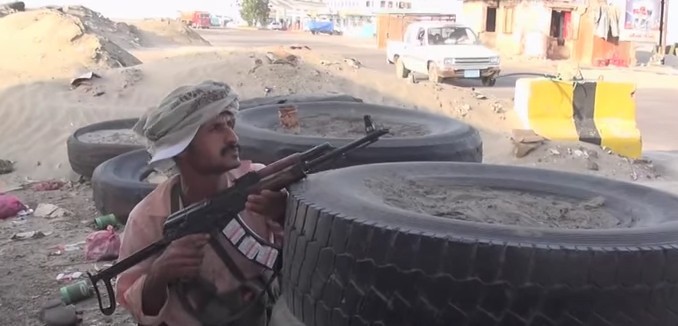
The Iranian-backed Houthi rebels have taken over large parts of Aden, including the presidential palace, the Associated Press (AP) reported yesterday.
Yemen’s Shiite rebels and their allies fought their way through the commercial center of Aden on Thursday and seized the presidential palace on a strategic hilltop in this southern coastal city, security officials said.
The capture was a major blow to the Saudi-led coalition, which has been carrying out airstrikes for a week now across Yemen, including in the capital, Sanaa, in a campaign meant to halt the advance of the Iran-backed rebels known as Houthis.
The Maasheeq palace in Aden — a cluster of colonial-era villas perched atop a rocky hill that juts into the Arabian Sea — was President Abed Rabbo Mansour Hadi’s last seat of power before he fled to Saudi Arabia last month in the face of the Houthi advance. He had earlier fled to Aden from rebel-held Sanaa.AP further reported that Al Qaeda capitalized on the power struggle by attacking a jail in a city east of Aden and freeing 300 terrorists. One Saudi border guard was killed and ten more injured in an exchange of fire on the Saudi-Yemen border. These were the first Saudi casualties since the Saudi military campaign to oust the Houthis started a week ago.
The Houthis, who are backed by Iran, have prevented a formation of a new government in Yemen since last year. Iran’s support for the Houthis has been open, and in November an influential Iranian politician boasted that Iran had captured its fourth Arab capital, Sanaa. In January, Houthi pressure forced the Yemeni government to resign and later forced Yemen’s American-backed president, Abed Rabbo Mansour Hadi to flee.
Late last month, while writing about the deteriorating conditions in Yemen, Eli Lake of Bloomberg View quoted Rep. Ed Royce (R – Calif.) who said that
“even before the negotiations began, when the U.S. unfroze some Iranian assets at the end of 2013, ambassadors for Gulf countries predicted the cash would be used to destabilize the region: ‘We’re seeing today what every Gulf ambassador predicted Iran would do, we’re seeing Iran destabilize the region.’ ”

No comments:
Post a Comment